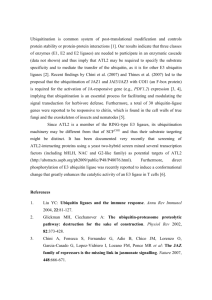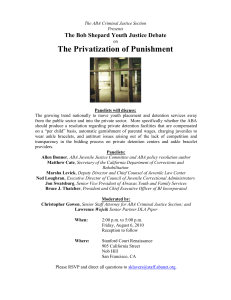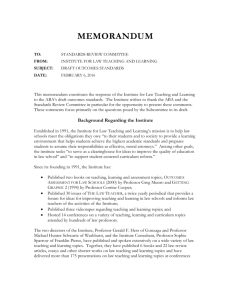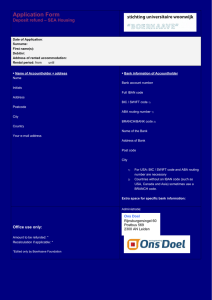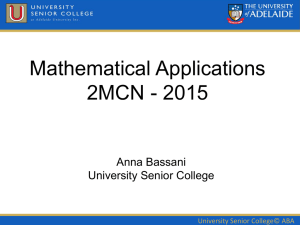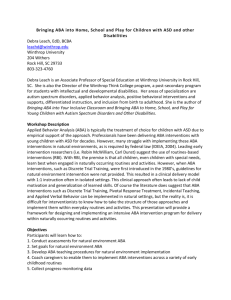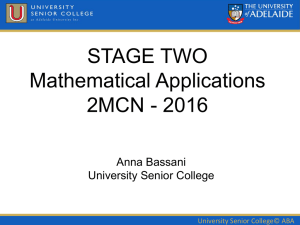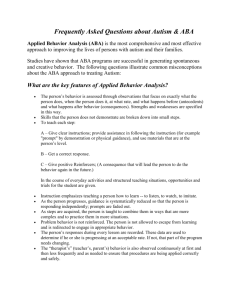Feifei Yu - IPMB2015
advertisement
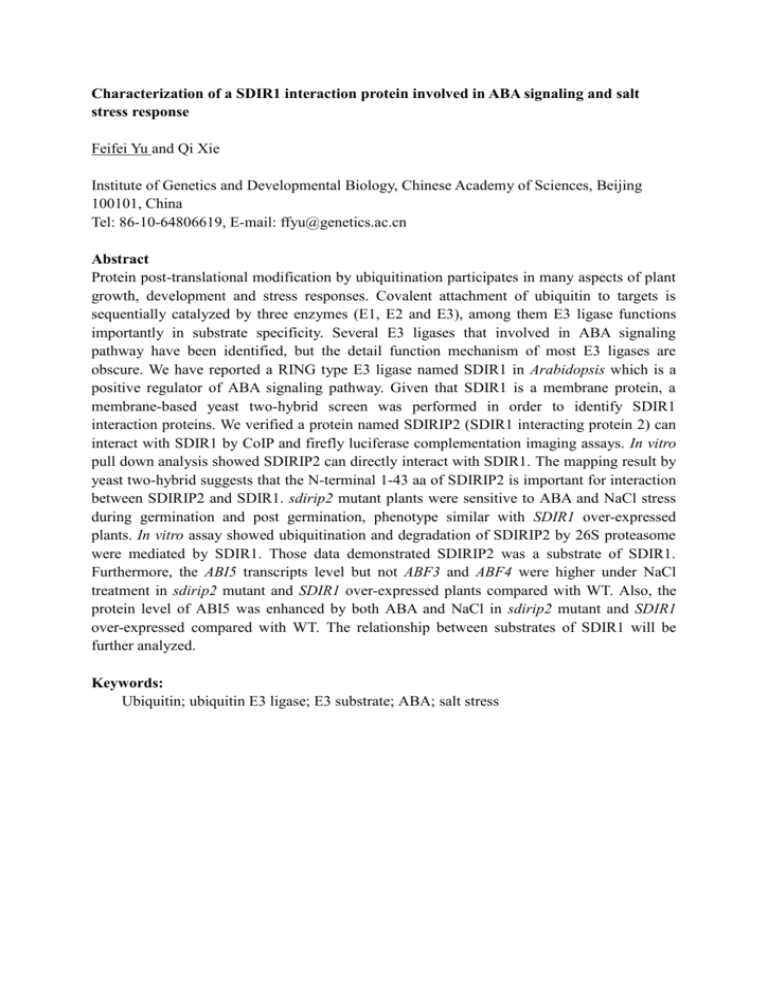
Characterization of a SDIR1 interaction protein involved in ABA signaling and salt stress response Feifei Yu and Qi Xie Institute of Genetics and Developmental Biology, Chinese Academy of Sciences, Beijing 100101, China Tel: 86-10-64806619, E-mail: ffyu@genetics.ac.cn Abstract Protein post-translational modification by ubiquitination participates in many aspects of plant growth, development and stress responses. Covalent attachment of ubiquitin to targets is sequentially catalyzed by three enzymes (E1, E2 and E3), among them E3 ligase functions importantly in substrate specificity. Several E3 ligases that involved in ABA signaling pathway have been identified, but the detail function mechanism of most E3 ligases are obscure. We have reported a RING type E3 ligase named SDIR1 in Arabidopsis which is a positive regulator of ABA signaling pathway. Given that SDIR1 is a membrane protein, a membrane-based yeast two-hybrid screen was performed in order to identify SDIR1 interaction proteins. We verified a protein named SDIRIP2 (SDIR1 interacting protein 2) can interact with SDIR1 by CoIP and firefly luciferase complementation imaging assays. In vitro pull down analysis showed SDIRIP2 can directly interact with SDIR1. The mapping result by yeast two-hybrid suggests that the N-terminal 1-43 aa of SDIRIP2 is important for interaction between SDIRIP2 and SDIR1. sdirip2 mutant plants were sensitive to ABA and NaCl stress during germination and post germination, phenotype similar with SDIR1 over-expressed plants. In vitro assay showed ubiquitination and degradation of SDIRIP2 by 26S proteasome were mediated by SDIR1. Those data demonstrated SDIRIP2 was a substrate of SDIR1. Furthermore, the ABI5 transcripts level but not ABF3 and ABF4 were higher under NaCl treatment in sdirip2 mutant and SDIR1 over-expressed plants compared with WT. Also, the protein level of ABI5 was enhanced by both ABA and NaCl in sdirip2 mutant and SDIR1 over-expressed compared with WT. The relationship between substrates of SDIR1 will be further analyzed. Keywords: Ubiquitin; ubiquitin E3 ligase; E3 substrate; ABA; salt stress
